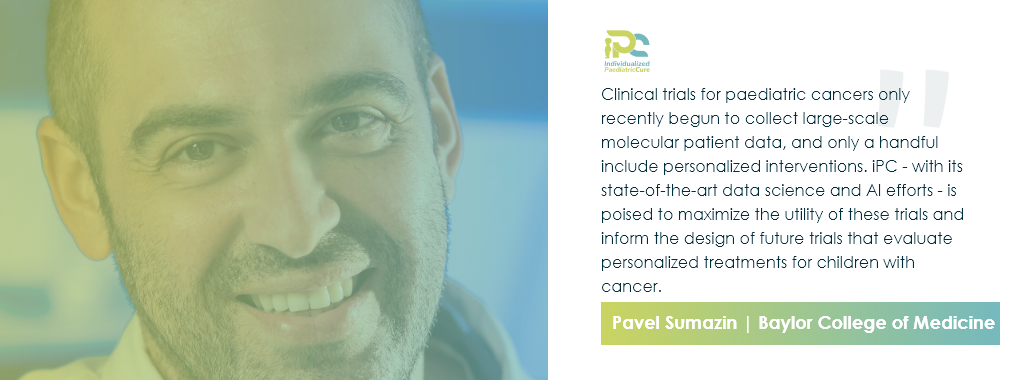Today in a talk with Pavel Sumazin – 5 questions about himself and the iPC H2020 project.
Introduce yourself and tell us a bit about your background.
I was trained in computer science and human genetics. I am on the faculty of Pediatrics at Baylor College of Medicine and my lab focuses on the genomic analysis of pediatric malignancies, with a special focus on RNA biology.
What is your title and/or role in the project?
My lab is involved in multiple work packages, and they lead WP1. I am also the chair of the advisory board.
What are your contributions to the project? (Specify what deliverables and/or tasks you are responsible for)
Our contribution is in the analysis of molecular data from pediatric cancer clinical studies and the design of predictive functions that inform diagnostics and therapeutic selection for kids with cancer.
What challenges can you foresee in the project?
The project faces multiple challenges. The first of which is that few cancer studies with a breadth of molecular data have completed to date. Our current focus is in gaining access to molecular and clinical data before trials ended. Another key challenge is that most pediatric patients are exclusively treated with chemotherapy. Therapeutic choices for these patients include (i) selection regarding the intensity of chemo treatment, and (ii) the assignment of patients to experimental therapies. While more data is available for selecting intensities, data associated with successful targeted therapies is sparse and not always easily accessible.
How do you think the project outcome could affect our daily life?
The outcome of the project may help usher in personalized medicine approaches for kids with cancer. It has the potential to reduce toxicities and improve outcome. While most cancer efforts still focus on improving outcome, reducing toxicities for pediatric patients will have a major impact on our society as children that recover from cancer often suffer from long-term complications that impact their quality of life and the quality of life of their family members.
